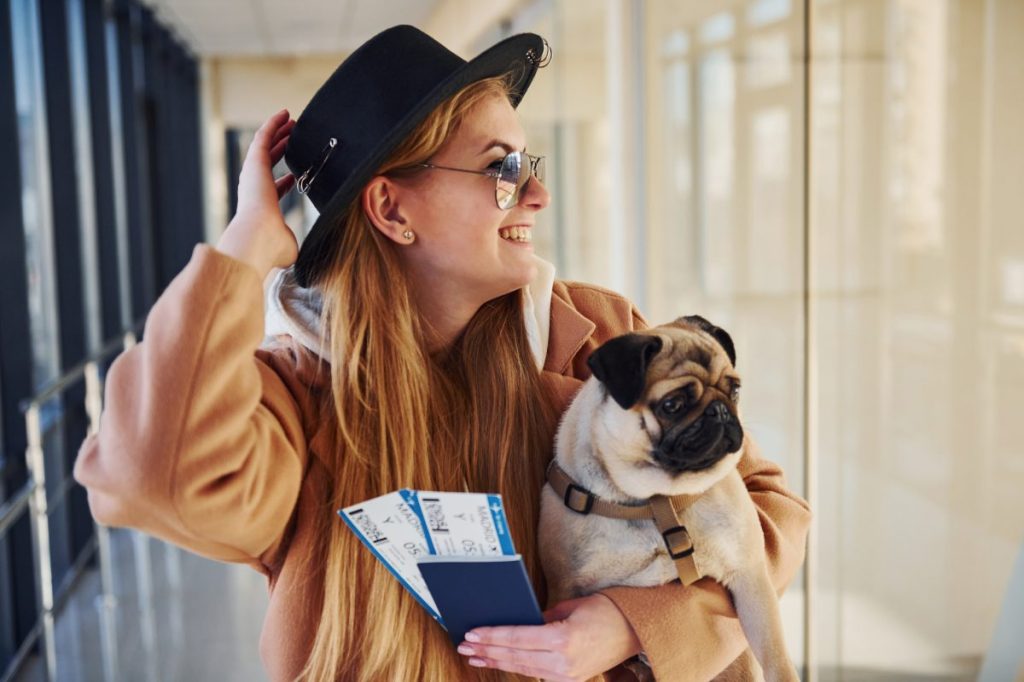With pet-friendly hotels, cabins, and resorts popping up all over the map, traveling with your best friend has never been easier. While jetting off at a moment’s notice sounds romantic, it can be challenging if your dog is along for the ride. Here are some dog travel tips to make the journey easier for both of you.
Practice before you travel with your dog
In any endeavor, practice makes perfect. Your angel of a dog could turn into a devil in transit if you fail to prepare properly. But with a little forethought, you can help your pup learn to take travel in stride.
- Acclimate your dog to their carrier or crate. Set the carrier or crate up in the comfort of your home well in advance to help your dog view it as a safe and familiar den. Be sure the carrier’s big enough so your dog can stand up, turn around, and lie down comfortably.
- Stick to day trips at first. This is especially helpful for a puppy who hasn’t been away from home much. A day trip to an unfamiliar locale can help your dog get used to exploring new terrain and meeting new people.
- Try an overnight trip next. Once your dog is used to short journeys, arrange to spend a night with a friend or relative. Or, go to a pet-friendly hotel. This will expose your dog to a variety of potentially anxiety-producing situations. They’ll practice sleeping in a new place, meeting strangers, and dealing with the odd noises of a different household or a hotel.
Prepare your dog for a longer trip
Whether you’re setting out via plane, ship, or automobile, take these steps before you travel:
1. See your veterinarian. Make sure your dog is in good health, is up-to-date on vaccinations, and has enough of any necessary medications for the trip. Depending on the destination, the vet may suggest additional vaccinations. For example, if travel involves hiking in the woods, the vet could advise a shot for Lyme disease.
2. Get a health certificate from your vet. This verifies that your dog’s in good condition, and it may be required by some airlines, hotels, or doggie daycare locations in other cities.
3. Talk to the vet about sedatives. These are most important if your pet has had travel anxiety in the past, but you may choose to use them as a precautionary measure. However, your vet may advise against them for airplane travel.
4. Try any new sedatives or medications before you leave. Check to see if your dog has any allergic reactions that require a vet visit.
5. Ask your vet about a microchip. If your dog doesn’t have one already, you may want one as a safeguard against losing him permanently in an unfamiliar place.
6. Know the rules at your destination. For instance, to bring a dog across the border to Mexico, the health certificate must be dated within two weeks of the travel date. Most such certificates will remain valid for 30 days, to cover bringing the dog back into the U.S. at the end of your trip.
7. Research dog-walking routes in advance. Remember, dogs are creatures of routine, and yours will need that daily walk no matter where your vacation spot is. Plus, they’ll enjoy the adventure of new outings.
Pet-friendly accommodations make it possible to travel widely with your dog — but regulations and requirements mean it’s crucial to plan all the details first. Do the groundwork ahead of time, then enjoy the journey of traveling with your dog!









